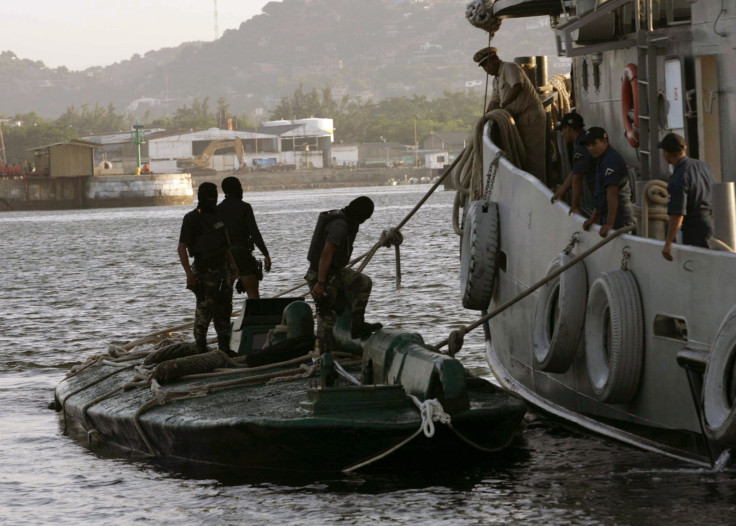
Animal Politico reported on Thursday that the Pacific Ocean is becoming an increasingly popular route for drug traffickers seeking to smuggle narcotics into the United States from Mexico. A Border Patrol official told the site that with overland routes becoming more precarious for narcos because of the agency’s ramped-up enforcement efforts, trafficking by way of the Pacific has gone up 73 percent in the last four years, with some routes out of Tijuana leading as far north as Monterey, just south of San Francisco. Since the agency’s first off-shore apprehension in 2008 up to November 2013, 156,026 tons of drugs have been seized in some 562 anti-drug operations.
Drug trafficking routes dipping into the Pacific don’t always originate so close to the US border. Ports in several southwestern Mexican states – for instance, the port of Lázaro Cárdenas in Guerrero, where an operation by the Mexican military in November saw control over it being wrested from the Knights Templar cartel – are often important stop-off points. Cartels often receive shipments of the chemical precursors for synthetic drugs manufactured typically in clandestine labs further inland, according to El Observador. From there, the drugs continue their journey northward to their main markets in the United States.
The price of cocaine in the United States is falling. Yet the Border Patrol has made 66 percent fewer seizures of the drug on the US-Mexico border – and 35 percent fewer of marijuana shipments. In an interview with Animal Politico, agent Gerardo U. Gutiérrez attributed the decline in seizures to decreased overland smuggling due to “the difficulty” of doing it successfully. “There’s been a change in the way drugs are trafficked,” he said. “We’ve seen movement in a perimeter of 250 miles on the ocean with pangas (canoes), jet skis and other crafts. They’re part of our statistics now, because the ocean is now an established route for drug traffickers.”
© 2024 Latin Times. All rights reserved. Do not reproduce without permission.